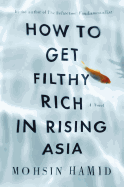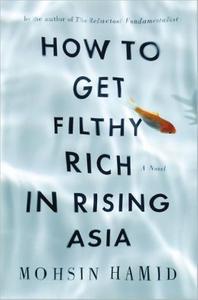

None of the characters are named. The central character--who's writing a business self-help book called How to Get Filthy Rich in Rising Asia--refers to himself as "you" as he tells his story and gives the other figures in his story simple labels such as pretty girl, leader, matriarch, master. His rags-to-riches, how-to-succeed guide turns out to be exceptionally rich in the savage ironies of poverty. The narrator's brother is slowly killing himself working without a mask as an assistant to a spray painter, while his schoolteacher really wants to be an electricity meter reader, because of the greater prestige, graft opportunities and higher wages.
Starting with a night job as a DVD delivery boy, the narrator makes his way up the vicious economic ladder while courting the girl of his dreams with movie rentals. Hamid can be a biting satirist, but he also knows how to infuse his characters with genuine warmth and pathos, and never reduces them to mere symbols in a brutal capitalist fable. He makes his characters complex human creations with telling little touches.
An illegal water-bottling franchise is the foundation that transforms the narrator into a powerful water industrialist who soon has blood on his hands in the ruthless expansion of opportunistic schemes. Soon he is protected by constant guard surveillance, with barred windows and motion sensors, alarm systems and security cameras, not to mention his military-backed security measure of rooftop snipers.
Hamid's novel is a vision of a new, very modern kind of civilization designed for the have-plentys, where the have-nothings survive amid electrical outages and contaminated water in a society that accepts hugely divergent inequality as normal and the defense of possessions against all comers as a right beyond all laws. Hamid has a vast compassion for the wretched, and his story, horrifying in its casual description of abject lives, is a cry for compassion cloaked in a savage smile. --Nick DiMartino
Shelf Talker: Hamid's satire may be fiendishly clever, but he always manages to give his characters telling little touches of humanity, even when none of them have names.

